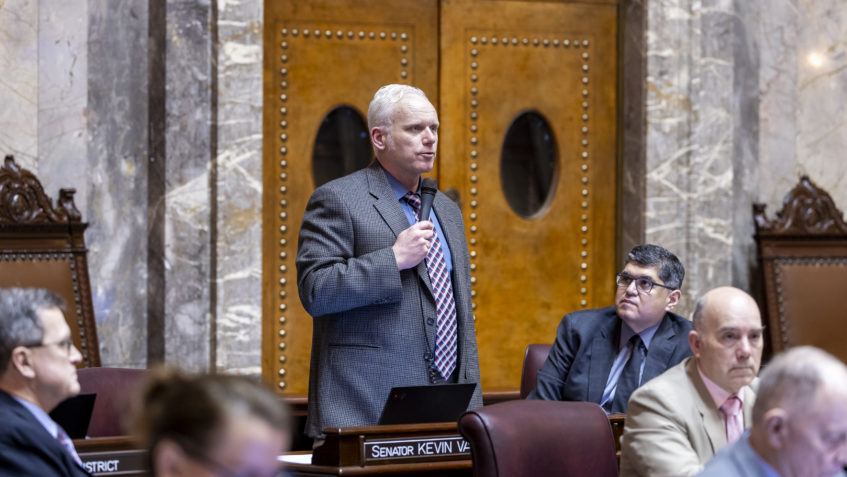OLYMPIA — Senate legislation passed today by the House will reduce the scope of wildfires by promoting the use of new technology to remove dead timber and other ground materials that help the fires spread.
Having already passed the Senate, SB 6121 now goes to the governor to be signed into law. The bill promotes the removal of common ground fuels by incinerating dead forest growth, commonly known as slash, through modern technology that is environmentally friendly and generates a useful by-product.
“Piles of slash are common in logging areas and offer a ready fuel that helps wildfires quickly spread and grow,” said Sen. Kevin Van De Wege (D-Lake Sutherland), the bill’s sponsor. “By helping companies to remove slash more quickly, we can eliminate a deadly contributor to wildfires.”
Modern slash incineration technologies like flame cap kilns release fewer emissions and generate biochar, a product that is profitable and useful to agriculture. Biochar is attractive to farmers for its high carbon content and water-retention properties; when mixed with fertilizer, biochar reduces the amount of water needed for irrigation.
“No matter how you look at it, the benefits are clear,” Van De Wege said. “We have a way to turn potential wildfire fuels into a product that can boost crops and reduce demand on our limited water supplies at the same time.”
“This bill is game changing for the U.S. Rake Force. We ‘rake the forest’ with goats first, then chainsaws, to prevent catastrophic fire, but then we collect the excess wood fuel that we’ve thinned and pruned, and we make biochar,” said Jake Dailey of the U.S. Rake Force, a veteran-owned regenerative agroforestry and conservation startup in southwest Washington. “This bill permits the use of these flame cap kilns that help us efficiently make biochar, which is a carbon credit earning activity, opening the door of the carbon market to small-scale producers and subsidizing some of the cost of managing our forests to be resilient against catastrophic fire.”




